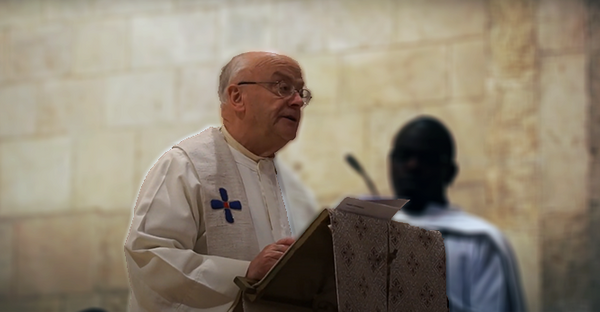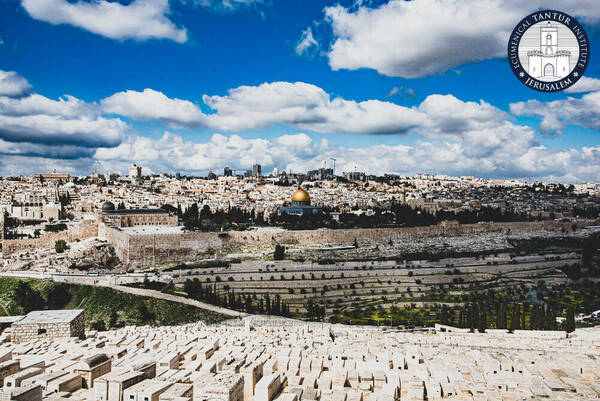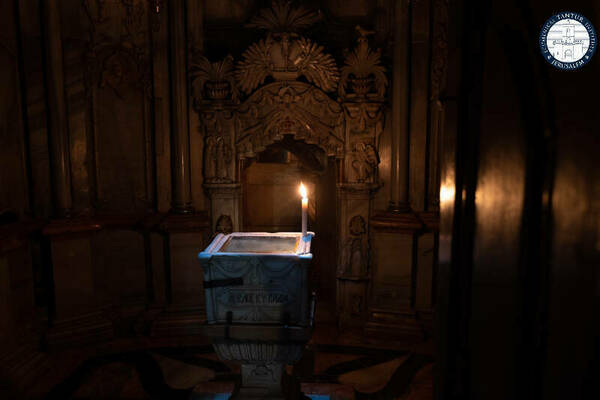
The Week of Prayer for Christian Unity in Jerusalem
The celebration of the Week of Prayer for Christian Unity is a yearly highlight in the ecumenical life of Jerusalem. In normal times, some international groups chose to visit Jerusalem especially during this week, in order to take part in the prayers.
Every day of the week, an ecumenical service is held in a different Church. While taking into consideration the general theme of the year, in 2022: “We saw the star in the East, and we came to worship him” (Mt 2:22), the Churches are encouraged to structure the prayer according to their own liturgical tradition: Armenian, Coptic, Syriac, Ethiopian, Byzantine, Latin, Anglican, Lutheran and Reformed. In this way, the participants are given the opportunity to be initiated in the richness of the diversities of the many traditions that are present in Jerusalem and which make of Jerusalem a living image, an icon of the worldwide Church. This variety in praying and singing is widely appreciated and favours communion with the worldwide Church.
Every day, after the prayer, the host community offers refreshments to people present. This fraternal being together in shared joy and hope is part and parcel of the growing influence this common prayer has exercised on the relations among the Churches in Jerusalem in the course of the years. The richness of the celebration confirms that our prayers have been heard and are a living illustration of the present ecumenical climate in Jerusalem.

Today’s celebrations are the outcome of a long and gradual development, fruit of a humble commitment and a persevering prayer, since the beginnings of the celebration of the Week of Prayer for Christian Unity in Jerusalem in the early 1950s. This was the initiative of some individual persons and the first celebrations were mainly held within the denominations, in particular in Catholic churches or chapels. The first mention of an interdenominational prayer goes back to 1959: a small group of Anglicans, Catholics and Lutherans met on Calvary for one hour of silent prayer. In 1963, for the first time a series of prayers were held on different days of the week. From then on, one can witness a twofold development. First there was the widening of the number and diversity of people taking part in the prayers. Secondly, and more significantly, little by little, the Churches themselves took charge of the organization of the prayers and the heads of the various Churches started to participate and preside at the prayers. From prayers initiated by individual persons, the celebrations turned into celebrations adopted by the Churches. Since the 1970s the coordination of the celebrations is taken care of by the Ecumenical Circle of Friends, an informal group of clerics and laypersons from various Churches who meet every month, without being officially mandated by their Churches. Informal and unofficial contacts and meetings of this kind continue playing a significant role in promoting the ecumenical life in Jerusalem.
In order to facilitate the participation of the Orthodox Churches, the dates of the Week of Prayer were slightly modified. Eastern and Oriental Orthodox Churches celebrate Epiphany on January 19; this makes it difficult for these Churches to take an active part in the celebrations if they were held according to the traditional dates: January 18 to January 25. Therefore it was decided, in 1972, that the week would be celebrated between the two last Sundays of January. This is still the practice today.
As a concrete illustration of the above, here is the program for the Week in 2022:
Saturday, Jan. 22 Anastasis (Holy Sepulchre), Calvary, Greek Orthodox
Sunday, Jan. 23 Anglican Cathedral of St George
Monday, Jan. 24 Armenian Cathedral of St James (Canceled due to Covid)
Tuesday, Jan. 25 Lutheran Church of the Redeemer
Wednesday, Jan. 26 St Saviour’s Latin Catholic Parish Church
Thursday, Jan. 27 Upper Room, Cenacle
Friday, Jan. 28 St Mark’s Church, Syrian Orthodox
Saturday, Jan. 29 St Andrew’s Scots Memorial Church
Sunday, Jan. 30 Greek Catholic Church of Annunciation
This program is of course subject to last minute changes, due to the uncertainty of the sanitary situation because of the Covid-19 pandemic.

The Week of Prayer for Christian Unity is also a welcome opportunity to reflect on the present status of ecumenical relations in Jerusalem. The richness of the ecumenical prayers are already an illustration of the progress accomplished in the latest decades, at various levels in the life of the Churches. The pilgrims who come to Jerusalem can witness a new climate in the relations among the clerics of the Churches in charge of the Holy Places, first of all in the Holy Sepulchre. Their collaboration for the restoration of the Holy Sepulcher and the Nativity Church in Bethlehem has been a crucial factor in this change. The Heads of the major Churches – Eastern Orthodox, Oriental Orthodox, Catholic, Anglican, Evangelical – started meeting and coordinating in the 1980’s when their communities were confronted with situations of violence, suffering, injustices and saw a growing number of their faithful emigrating. These heads of Churches felt the need to take a common stand and to speak with one voice. They now meet regularly and publish common messages for Christmas and Easter and whenever they deem it necessary. They are united in a constant concern for the defense, freedom and rights of the Christian communities and of the Churches in the Holy Land. At the grassroot level, the Christian faithful have a strong feeling that they belong to one and the same community, in continuity with the first generations of disciples of Christ in the Holy Land. This feeling transcends the divisions that were brought to Jerusalem by the various Churches that felt the need to be present in the Holy City. The faithful live and work spontaneously together, in all fields, being aware that it is only together that they can have a future in this country. Maybe they have in this respect an experience and a message to share with the Church leaders. Communion needs to start from the local community, in Word and Sacrament, and the way forward is a walking together, in a real synodal way.